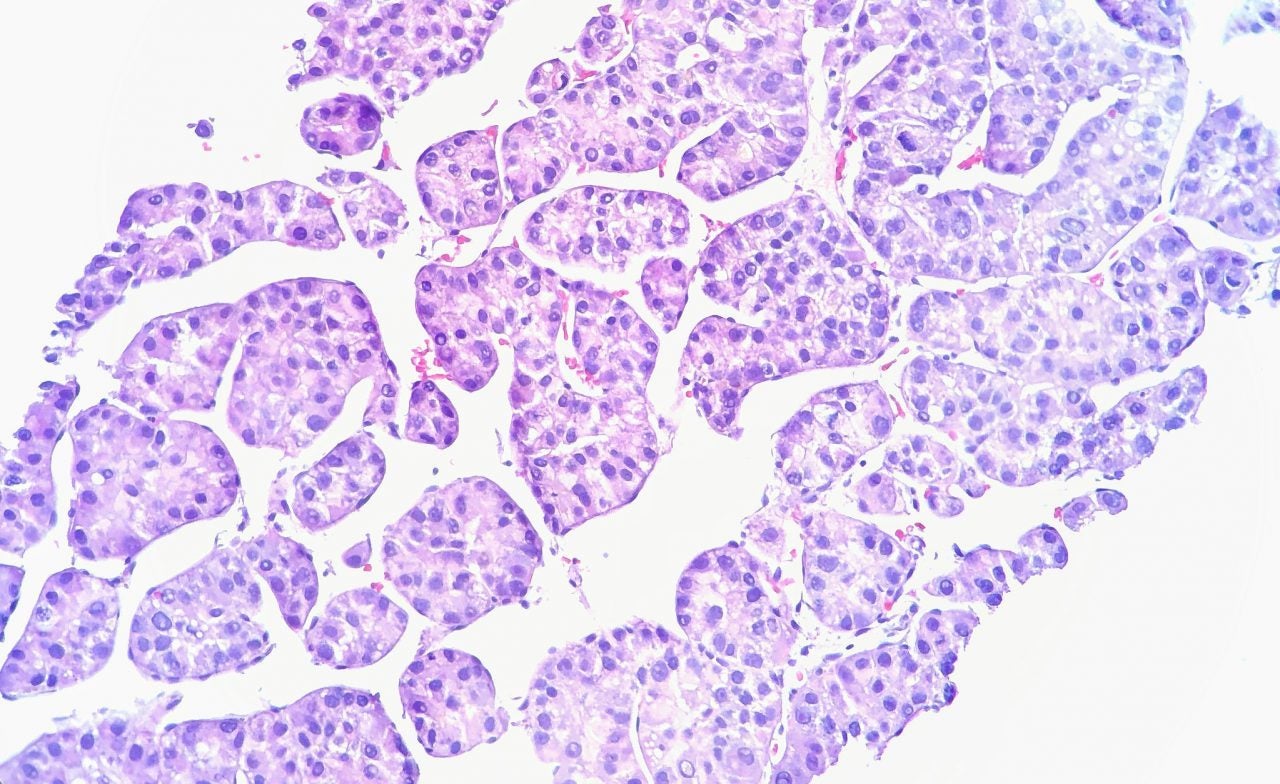
InteRNA Technologies has dosed the first patient in the first cohort of its first-in-human Phase I study of its lead microRNA candidate, INT-1B3, for treating patients with advanced solid tumours.
INT-1B3 is a microRNA-mimic of the endogenous tumour suppressor miR-193a-3p formulated in next-generation lipid nanoparticles and can potentially address various hallmarks of cancer at the same time.

Discover B2B Marketing That Performs
Combine business intelligence and editorial excellence to reach engaged professionals across 36 leading media platforms.
It targets tumour cells and the tumour microenvironment by modulating multiple relevant signalling pathway components triggering a long-term T cell-mediated immune response against the tumour.
The two-part, open-label, multiple ascending dose Phase I/Ib trial will evaluate the safety, pharmacokinetics, pharmacodynamics, and preliminary efficacy of INT-1B3.
The dose escalation part of the study (Part 1) will be carried out in trial sites in the Netherlands and Belgium and will have around 30 subjects with advanced solid tumours.
With up to 50 patients with hepatocellular carcinoma or triple-negative breast cancer, the dose expansion part (part 2) will be carried out in various clinical study centres in several European countries and the US.

US Tariffs are shifting - will you react or anticipate?
Don’t let policy changes catch you off guard. Stay proactive with real-time data and expert analysis.
By GlobalDataIn the study, all subjects will be given INT-1B3 infusions twice a week in 21-day cycles.
The company anticipates topline results from the dose escalation part by the year-end.
InteRNA Technologies CEO Dr Roel Schaapveld said: “The enrolment of the first patient in this trial, especially during the ongoing Covid-19 pandemic, is a significant milestone for InteRNA.
“microRNAs represent a new class of therapeutic agents that have the potential to change the treatment paradigm in immune-oncology, delivering a combination approach as a single regimen.
“We are very pleased that the first patient completed the first cycle without dose-limiting toxicity, and enrolment of the second cohort could already be initiated.”





